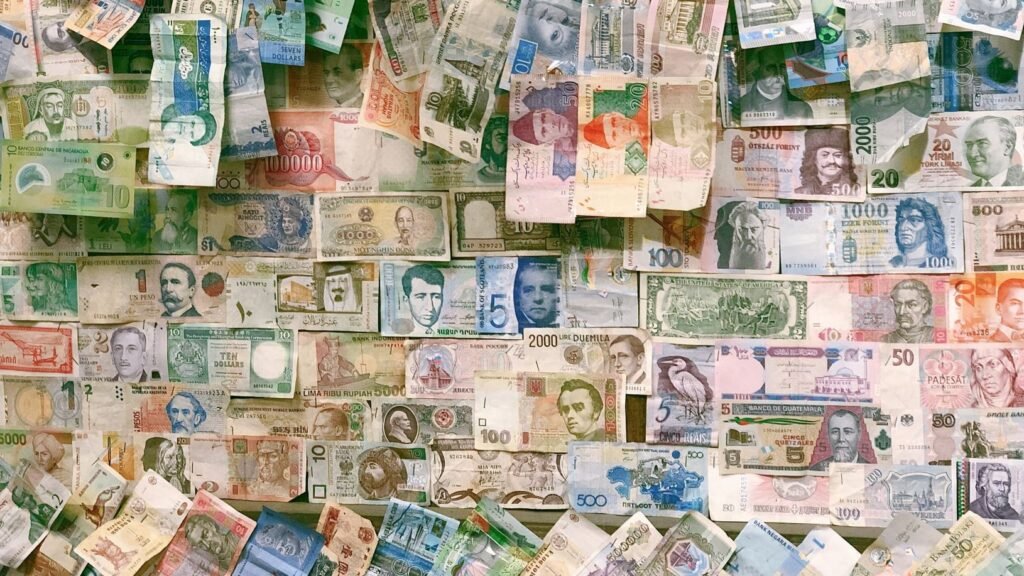Introduction to Currency Exchange
Currency Exchange in Pakistan is a crucial part of global trade, travel, and investment. It involves converting one currency into another at an agreed-upon rate. But why is currency exchange so vital, especially in Pakistan? Let’s dive in to understand the nuances and significance of this financial process.
What is Currency Exchange?
Currency exchange is the process of converting one form of money into another. Think of it like swapping your old phone for a new one—except, instead of trading gadgets, you’re trading money. In Pakistan, this means exchanging Pakistani Rupees (PKR) for foreign currencies like the US Dollar or Euro, and vice versa.
Importance of Currency Exchange
For a country like Pakistan, currency exchange is more than just a convenience; it’s a necessity. It impacts international travel, trade deals, and even local businesses. Whether you’re a tourist needing cash or a business importing goods, understanding how currency exchange works can save you a lot of trouble.
Types of Currency Exchange Services
When you need to exchange currency, you have several options in Pakistan. Each comes with its own set of benefits and drawbacks.
Banks
Banks are the most common place for currency exchange. They offer reliable services and are generally safe. However, they might not always provide the best exchange rates, and their service fees can be on the higher side.
Exchange Bureaus
Exchange bureaus, or currency exchange shops, are another popular option. They often offer better rates than banks and are usually more flexible. But, they can sometimes be less regulated, which might raise concerns.
Online Platforms
In the digital age, online currency exchange platforms have become increasingly popular. They offer the convenience of exchanging money from the comfort of your home. But, like any online service, they come with their own set of risks.
Pros and Cons of Online Platforms
Pros:
- Convenience: Exchange money anytime, anywhere.
- Competitive Rates: Often better rates than physical locations.
- Quick Transactions: Faster than traditional methods.
Cons:
- Security Risks: Potential for fraud if not using reputable services.
- Service Fees: Some platforms might have hidden fees.
- Technical Issues: Dependence on internet connectivity.
Popular Currency Exchange Rates in Pakistan
Exchange rates fluctuate constantly due to market conditions. Here’s a look at some common rates you might encounter.
US Dollar to Pakistani Rupee
The US Dollar is one of the most traded currencies globally. In Pakistan, it’s commonly used for international transactions and travel. The rate at which you can exchange US Dollars to Pakistani Rupees can vary, so it’s worth checking current rates before making a transaction.
Euro to Pakistani Rupee
The Euro is another significant currency in the global market. If you’re traveling to Europe or dealing with European businesses, you’ll need to convert your Rupees to Euros. As with the Dollar, the rate can vary, so keep an eye on current exchange rates.
Saudi Riyal to Pakistani Rupee
Saudi Riyal is important for Pakistani expatriates working in Saudi Arabia. They often need to send money back home, so understanding the Riyal to Rupee exchange rate is crucial for them.
How to Choose a Currency Exchange Service
Selecting the right currency exchange service can make a big difference in the amount of money you get in return.
Factors to Consider
- Rates: Look for competitive exchange rates.
- Fees: Check for any additional charges or fees.
- Reputation: Choose services with a good reputation for reliability and safety.
Tips for Getting the Best Rates
- Compare Rates: Look at multiple sources to find the best rate.
- Watch Market Trends: Exchange rates can fluctuate based on market trends.
- Avoid Airport Exchanges: Rates at airports are often less favorable.
Currency Exchange and Economic Impact
Currency exchange isn’t just about individual transactions; it has broader implications for the economy.
Impact on Trade and Tourism
For businesses involved in international trade, favorable exchange rates can enhance competitiveness. Similarly, tourism can be boosted when tourists find better exchange rates.
Effect on Local Economy
The flow of foreign currency into Pakistan can impact local businesses and overall economic health. A stronger Rupee might benefit importers, while a weaker Rupee could help exporters.
Common Issues in Currency Exchange
While currency exchange is essential, it’s not without its issues.
Fraud and Scams
Currency exchange scams are not uncommon. Always use trusted services and be wary of deals that seem too good to be true.
Regulatory Challenges
Regulation of currency exchange can vary. In some cases, there might be legal complexities or restrictions to be aware of.
Conclusion
Understanding currency exchange in Pakistan is crucial for both personal and business financial activities. By choosing the right service and staying informed about exchange rates, you can navigate this essential financial aspect more effectively. Whether you’re traveling, trading, or simply managing your finances, a little knowledge goes a long way.
FAQs
What is the best time to exchange currency in Pakistan?
The best time to exchange currency is typically when the rates are favorable. Keep an eye on market trends and news to time your exchange.
Are there any hidden fees in currency exchange services?
Some services might have hidden fees. Always ask for a breakdown of fees and rates before making a transaction.
How can I avoid currency exchange scams?
Use reputable and well-reviewed services. Avoid deals that seem too good to be true and be cautious of unlicensed operators.
Can I exchange foreign currency at Pakistani airports?
Yes, foreign currency can be exchanged at Pakistani airports, but the rates might not be as favorable as other locations.
What documents are needed for currency exchange?
Generally, you’ll need a valid ID and possibly proof of the source of your funds. Check with the specific service for their requirements.







More Stories
Build a VR Shopping Experience with Low Budget, More Profit
Indulge in Beauty at Our Hair Salon
Degree Certificates – Guide to Attesting